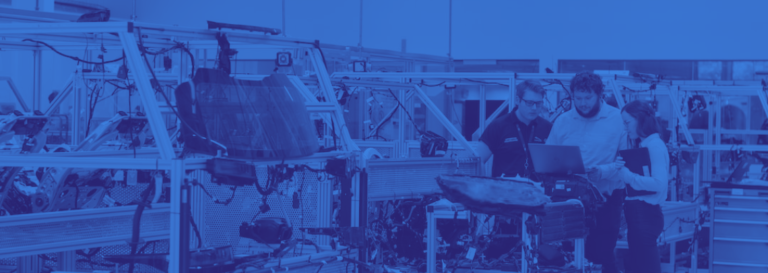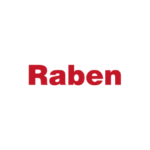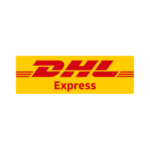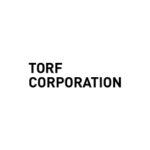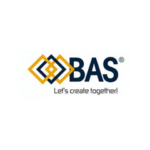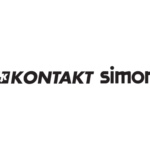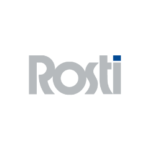ERP systems appear as comprehensive production management solutions in all areas. This belief firmly persists among individuals and businesses that use this class of systems on a daily basis. During the implementation, we hope that all our problems will be solved and we will finally not have to need Excel for work. Practice shows something completely different: despite the satisfaction of the accounting, control and finance departments, in areas related to production planning and controlling, work does not get much easier. All key decisions are still based on the spreadsheet analysis. Does it really have to be this way?
Which ERP system should be chosen for production planning?
Central Statistical Office 2019 data show that almost every third company in Poland decided to choose an ERP system. The marketing message is that various modules of this class systems support all areas of the enterprise activity. However, when you investigate the details, you gradually come to the conclusion that the system support is not complete and a lot of work needs to be done outside of the IT system.
Therefore, it is good to ask the questions:
- What functionalities has my ERP system got and does the software support all production management processes?
- Does the ERP system give me the opportunity to achieve my business goals?
- To what extent?
- Does the ERP system make the work ergonomic?
- Do modifications comply with assumptions?
- To what extent do the systems enable mapping of all the production processes?
- How long do I have to wait for feedback after I enter new data?
The answers clearly show that ERP systems in the company are not an ideal solution, although they meet a lot of needs in the production process and customer order processing. There are areas where they work very well and are irreplaceable. But achieving the business goals you assumed is a complex process which depends on the proper synchronisation and integration of all areas. It is said that a chain is only as strong as its weakest link, which is why the quality of work of individual departments is so important.
Fast and error-free information from the areas listed below is the basis for a well-adjusted production plan in many different variants. This also works the other way: the adequate production schedule allows effective completion of tasks and achieving all of the goals. In spite of appearances, integration and full synergy do not have to be achieved using one comprehensive system. The current level of technology development allows you to easily synchronise data from many expert solutions dedicated to specific applications.
ERP and production planning
Most of ERP systems offer a module that enables production management: schedules and technologies, orders and graphs of the availability of production resources. It allows the user to make production plans. The system limits its assistance only to estimating the production capacity and, in some solutions available on the market, basic MRP I balancing. All optimisation work in this case is for the planners or managers and masters of production companies. They ultimately decide on the order of tasks, analyse the use of alternative machines and product substitutes, monitor the progress in the plant, correct the plan and analyse the availability of employees and unique tools (e.g. dies).
These variables are only a fraction of what the planner analyses before distributing the final production schedule. In standard system options, this work is not possible in ERP systems, which is why it becomes necessary to export data to a spreadsheet. In addition, many variables that affect the final plan remain “in the head” or on loose pages (e.g. machine limits and changeover times). In such a reality, any change in an influencing factor forces the user to redo their work and analyse the new situation. It can take up to several hours for complex processes.
Here you can read (on a specific example) how you can improve your production.
ERP: why companies look for other possibilities?
The main determinant in companies looking for a different IT solution is the inadequate support of the current ERP system with respect to their business goals, in particular areas of the process. A changing market is increasingly expecting an immediate response to the variables that affect the production process.
An example of this may be the need to estimate the effects of shifting production orders and the delivery of goods and products to the production plan as soon as possible, delivering the product to the customer or providing an instant response to their inquiry. This may apply, for example, to a very urgent order with an attractive margin. A very fast action is required, and hardly any company is able to afford MRP conversions at night. Therefore, exporting all data to Excel documents and a manual analysis of factors on their basis is the only way out of the situation.
ERP system: what does it NOT allow?
The challenge for companies is also to calculate the technical costs of manufacturing the product taking into account all alternative machines, raw material substitutes and various employee costs associated with the machinery. Many industries require full traceability of the raw materials used in the production process, and obtaining such information with adequate accuracy in the ERP system is virtually impossible (or too time-consuming comparing with other systems). Regular confirmation of production progress needs a lot of time and accuracy from the user. And we are not talking about the option of more advanced analyses and operations… An example of a completely neglected area, which has a very large impact on the achievement of business goals, is confronting the plans with the availability of employees and possible working time schedules.
Production processes in a company: functionality counts!
These are only some of the problems which every employee in the manufacturing industry encounters on a daily basis. Each sector has its own business goals that must be met, like the production sector does. However, these examples illustrate the need to search for specialised solutions and can be a starting point to analyse your own production process and the it does NOT have to be like that principle.
The IT systems and software market offer numerous solutions that promise you to improve the quality of operations in a company, but do note that the system itself is only a tool. You get actual effects only with the appropriate concept of the solution, which will not be limited to one particular aspect but will cover all its areas. This will only ensure the achievement of your goals.
Mateusz Bireta
product manager eq system




